Welcome to the PerGeos Use Case Gallery
Below you will find a collection of use cases using PerGeos Software. Based on the technology of its predecessor Avizo Software, PerGeos is a robust software platform for visualizing, processing, and analyzing 2D and 3D digital rock image data.
These use cases include scientific publications, articles, papers, posters, presentations or even videos that show how PerGeos is used to address various scientific and industrial research topics.
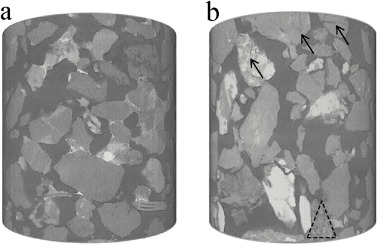
This study investigated the influence of compaction on the variation mechanism of petrophysical properties and the relative permeability of unconsolidated sandstone.
Firstly, triaxial mechanical experiments, CT scans, and mercury injection experiments were performed to analyze the microstructural characteristics and the macroscopic mechanism of changes in the petrophysical characteristics under different pressure. Secondly, a modified permeability test approach was adopted on reservoir... Read more
Yu Xiong, Hongguang Xu, Yongqing Wang, Wensheng Zhou, Ling Wang, Kai Feng
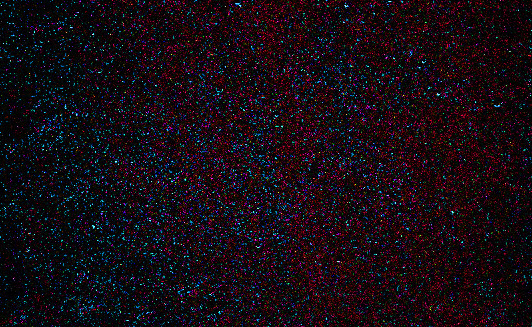
Major advance in well bore analysis with CT inspection
Premier, COREX has been providing core analytical services to the oil and gas industry for more than 30 years. Within the last decade it has augmented its rock core investigations by sending samples for analysis approximately every week to Nikon Metrology’s centre of excellence for micro-focus computed tomography (micro-CT) in Tring, Hertfordshire.
Drilling for oil or gas is an expensive business, whether offshore or on land, so it is essential for E&P (exploration and producti... Read more
Nikon
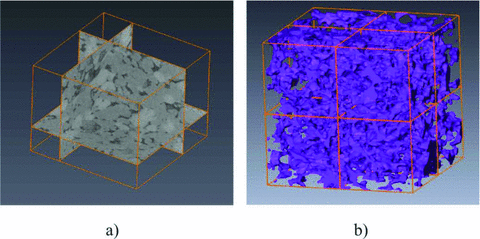
Computational elastic upscaling of sandstone on the basis of X‐ray micro‐tomographic images
Up‐scaling the elastic properties of digitized rock volumes as obtained from X‐ray computer tomography (CT) imaging via computer simulations has the potential to assist and complement laboratory measurements.
This computational up‐scaling approach remains a challenging task as the overall elastic properties are not only dependent on the elastic properties of individual grains but also on the hardly resolvable pore spaces between adjacent grains such as micro‐cracks. We develop ... Read more
Valeriya Shulakova, Marina Pervukhina, Tobias M. Müller, Maxim Lebedev, Sherry Mayo, Susanne Schmid, Pavel Golodoniuc, Osni Bastos De Paula, Michael B. Clennell, Boris Gurevich
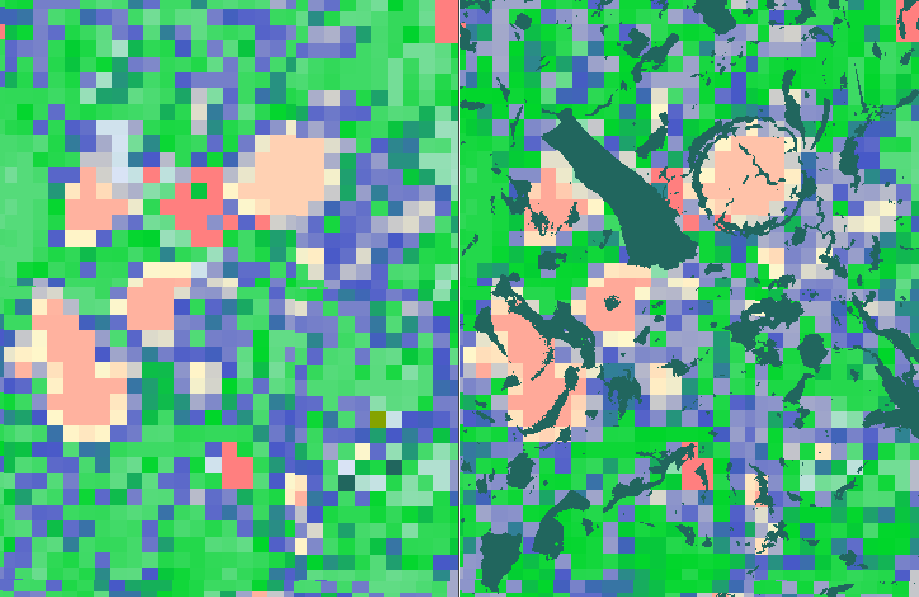
A Bridge With MAPS Mineralogy PerGeos v1.7
With the introduction of the Maps Mineralogy™ software suite, the successor of Qemscan, the technology has evolved, thanks to multiple patents bringing novel methods to acquire mineralogical information from digital rock samples with a modern and user friendly interface.
However, given the hardware technology advances and the emergence of new challenges in reservoir rocks, there is a need to fusion the mineralogical image and the back scattered electron... Read more
Gwenole Tallec - Thermo Fisher Scientific
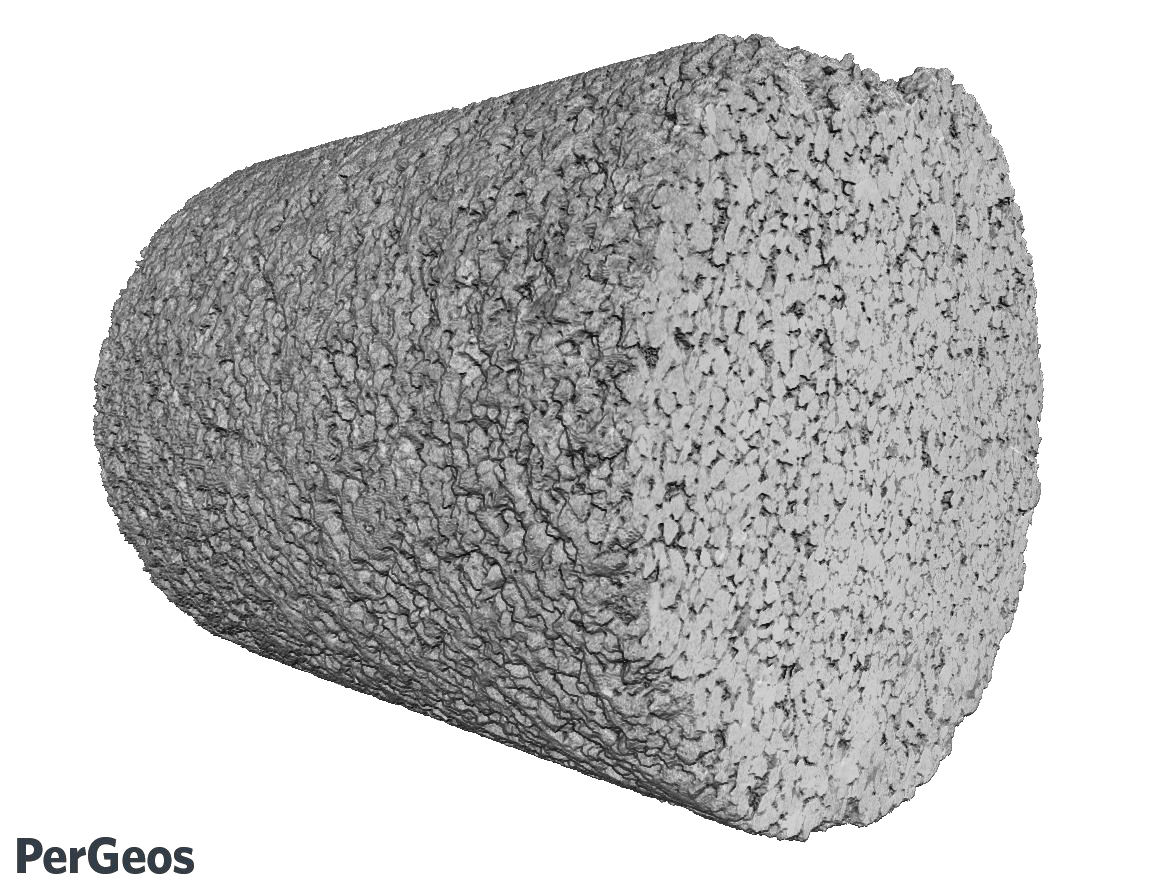
Analyzing Full Micro-CT Image of a Berea Sandstone Mini Plug and the Associated Challenges
X-ray micro-CT imaging is becoming an integral part of rock characterization processes. Large data size, user bias, and accuracy of the results are some of the challenges associated with analyzing micro-CT images of rock samples.
In this article, the PerGeos Digital Rock Analysis software is demonstrated to analyze the full micro-CT dataset of a Berea sandstone mini plug. The analysis is done in blocks using a PerGeos recipe (i.e. a macro) and a block-processing script. The results are... Read more
Arash Aghaei - Thermo Fisher Scientific
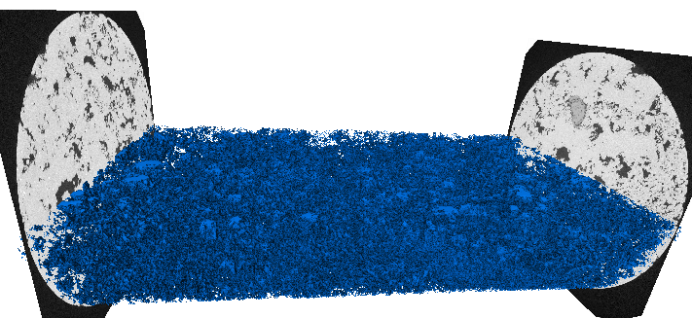
Handling Large data in PerGeos
We introduce here some techniques to visualize and process large data, mostly targeting the high resolution data acquired by Heliscan microCT.
The data is considered as “large” in the sense that its size exceeds the size of the GPU memory and/or the size of the RAM of the machine.
The following workflow:
- Segmentation
- Porosity / Connected porosity determination
- Pore separation / Pore Size distribution
- Grain size distribution
Gwenole Tallec - Thermo Fisher Scientific
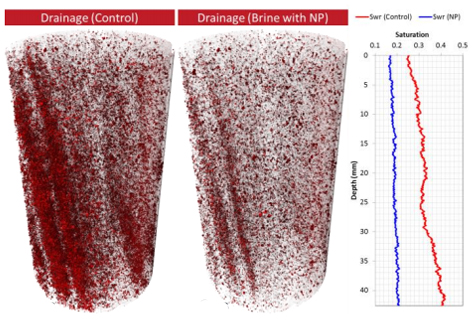
Pore-Scale observations of the effect of surface treated nanoparticles on drainage processes
In this study we observe, using pore scale X-ray micro-CT imaging and advanced petrophysical analysis, how surface treated silica nanoparticles improve sweep efficiency of n-octane in drainage corefloods. Specifically, upon injection of n-octane into a brine saturated core, preferential flow paths are observed and attributed to both viscous instability and rock heterogeneity; when the displaced phase contains a modest volume of nanoparticles, the same preferential flow paths are suppressed re... Read more
Department of Petroleum Engineering, The University of Texas at Austin | Departments of Chemical and Petroleum Engineering, University of Calgary | Materials & Structural Analysis, Thermo Fisher Scientific